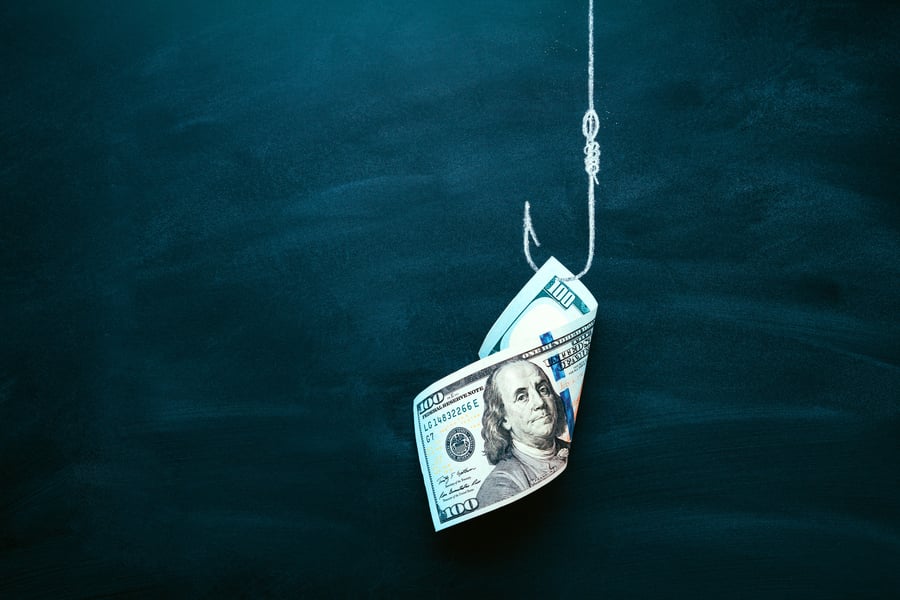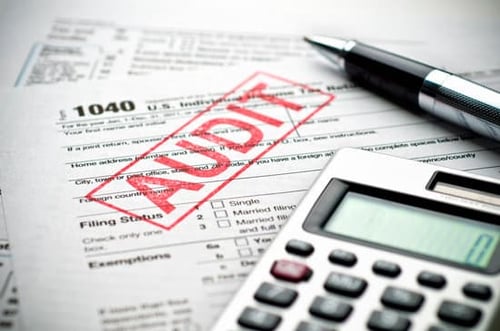Powell Tax Law Blog

Tax Scams for 2025
While “The Dirty Dozen” was an entertaining 1967 action movie with a host of Hollywood stars,“The Dirty Dozen” released by the IRS at the end of February was not something you want to see as it was the tax agency’s annual list of tax scams.
“From smishing to new client scams, the Internal Revenue Service is warning taxpayers, businesses and tax professionals to watch out for schemes that threaten financial information,” reported Scripps News.
Annual IRS Dirty Dozen Campaign Highlights Scams
The IRS has been releasing “The Dirty Dozen” each tax season since 2002 to warn taxpayers to watch out for dangerous threats.
“Ranging from email schemes to misleading tax credits, many of the Dirty Dozen items peak during filing season as people prepare their tax returns. In reality, these scams can occur throughout the year as fraudsters look for ways to steal money, personal information and data,” said an IRS release. “While the Dirty Dozen is not a legal document or a formal listing of agency enforcement priorities, the education effort is designed to raise awareness and protect taxpayers and tax pros from common tax scams and schemes.”
The Dirty Dozen list, says the IRS, often has cautioned taxpayers about tax-related identity theft, in support of the Security Summit’s ongoing efforts in this area, that have led to protecting millions of taxpayers and billions of dollars from refund fraud.
The Security Summit and IRS team up with state agencies and the nation's tax software and financial industry as well as tax professionals to educate taxpayers about scams and fraudulent schemes.
“Scammers are relentless, and they use the guise of tax season to try tricking taxpayers into falling into a variety of traps. These red flags can lead to everything from identity theft to being misled into claiming tax credits for which they’re not entitled,” said Terry Lemons, IRS communications senior adviser. “For more than two decades, the IRS has highlighted the Dirty Dozen through far-reaching communications and education campaigns as part of a wider effort by the agency to protect taxpayers from being scammed.”
The IRS 2025 Dirty Dozen Tax Scams
The IRS 2025 Dirty Dozen tax scam list includes everything from ghost tax return preparers to bogus tax credits to fake charities to bad social media advice (yes, TikTok, we are talking about you!).
Here’s the list from the IRS:
- Email phishing scams: The IRS continues to see a barrage of email and text scams targeting taxpayers and others. Taxpayers and tax professionals should be alert to fake communications from entities posing as legitimate organizations in the tax and financial community, including the IRS, state tax agencies and tax software companies. These messages arrive in the form of unsolicited texts or emails to lure unsuspecting victims into providing valuable personal and financial information that can lead to identity theft. There are two main types:
- Phishing: An email sent by fraudsters claiming to come from the IRS. The email lures the victims into the scam with a variety of ruses such as enticing victims with a phony tax refund or threatening them with false legal or criminal charges for tax fraud.
- Smishing: A text or smartphone SMS message where scammers often use alarming language such as, "Your account has now been put on hold," or "Unusual Activity Report," with a bogus "Solutions" link to restore the recipient's account. The promise of unexpected tax refunds is another potential tactic used by scam artists.
Says the IRS: “As a reminder, never click on any unsolicited communication claiming to be from the IRS as it may surreptitiously load malware. This may also be a way for malicious hackers to load ransomware that keeps the legitimate user from accessing their system and files.”
- Bad social media advice: Another growing concern in 2025 continues to involve incorrect tax information on social media that can mislead honest taxpayers with bad advice, potentially leading to identity theft and tax problems. Social media platforms routinely circulate inaccurate or misleading tax information, including TikTok where people share wildly inaccurate tax advice.
- IRS Individual Online Account help from scammers: Swindlers can pose as a "helpful" third party and offer to help create a taxpayer's IRS Individual Online Account at IRS.gov. Third parties making these offers will try to steal a taxpayer's personal information and try to submit fraudulent tax returns in the victim's name to get a big refund.
- Fake charities: Bogus charities are an annual problem that can intensify whenever a crisis or natural disaster strikes. Scammers set up these fake organizations to take advantage of the public's generosity. They seek money and personal information, which can be used to further exploit victims through identity theft.
- False Fuel Tax Credit claims: A Fuel Tax Credit is meant for off-highway business and farming use and is not available to most taxpayers. However, unscrupulous tax return preparers and promoters, including people on social media, continue enticing taxpayers into inflating their refunds by erroneously claiming the credit.
- Credits for Sick Leave and Family Leave: This specialized credit is available for self-employed individuals for 2020 and 2021 during the pandemic; the credit is not available for later tax years.
- Bogus self-employment tax credit: Social media advice continues to circulate about a non-existent “Self-Employment Tax Credit” that’s misleading taxpayers into filing false claims.
- Improper household employment taxes: Taxpayers “invent” fictional household employees and then file Schedule H (Form 1040), Household Employment Taxes, to claim a refund based on false sick and family medical leave wages they never paid.
- The overstated withholding scam: This is a recent scheme circulating on social media encouraging people to fill out Form W-2, Wage and Tax Statement, or other forms like Form 1099-NEC and other 1099s with false income and withholding information.
- Misleading Offers in Compromise: The Offers in Compromise (OIC) program is an important program that helps people settle their federal tax debts when they are unable to pay in full. But "mills" can aggressively promote Offers in Compromise in misleading ways to people who clearly don't meet the qualifications, frequently costing taxpayers thousands of dollars.
- Ghost tax return preparers: People should be careful of shady tax professionals and watch for common warning signs, including charging a fee based on the size of the refund. A major red flag or bad sign is when the tax preparer is unwilling to sign the return.
- New client scams and spear phishing: In 2025, the IRS continues to see the "new client" scam, which involves spear phishing attempts that target tax pros. Cybercriminals impersonate new, potential clients to trick tax professionals and other businesses into responding to their emails. Once the tax pro responds, the scammer sends a malicious attachment or URL that can compromise the preparer's computer systems and allow the attacker to access sensitive client information. Phishing is a term given to emails or text messages designed to get users to provide personal information, and spear phishing is a phishing attempt tailored to a specific organization or business.
Contact Powell Tax Law today for professional tax assistance that will keep you on the right side of the IRS.

.webp?width=500&name=thumbnail_large-1(2).webp)





